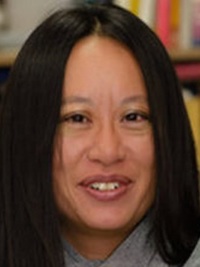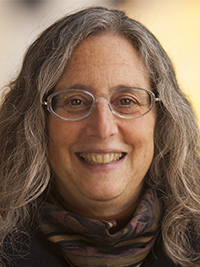New associate vice chancellors oversee research in biological sciences, arts and humanities
A new face and a familiar one have joined the leadership team in the Office of the Vice Chancellor for Research and Graduate Education.
Cynthia Czajkowski, professor of neuroscience in the School of Medicine and Public Health, has moved from interim to permanent status as the associate vice chancellor for research in the biological sciences. Florence Hsia, professor of history of science, has been appointed the associate vice chancellor for research in the arts and humanities.
Czajkowski’s OVCRGE responsibilities include biological sciences recruitment and retention, grant matches, faculty awards, center reviews, Fall Competition awards and UW2020 awards. She provides leadership for biological sciences interdisciplinary research across campus and helps oversee several research centers, including the Biotechnology Center, the Waisman Center and the Wisconsin Institute for Discovery.
“I am excited to have the opportunity to help strengthen, enhance and promote research in the biological sciences at UW–Madison,” Czajkowski says. “Research is a vital component of UW–Madison’s mission. It drives innovation, fosters creativity and produces new solutions for complex problems in medicine, biotechnology and agriculture. I look forward to supporting, facilitating and promoting the research efforts of our faculty, staff and students.”
“Research is a vital component of UW–Madison’s mission. It drives innovation, fosters creativity and produces new solutions for complex problems in medicine, biotechnology and agriculture.”Cynthia Czajkowski
Czajkowski’s own research focuses on how pentameric ligand-gated ion channels work and how therapeutic drugs modulate their activity. The opening and closing of these channels, which lie in the membranes of nerve cells, regulates information flow throughout the brain. Defects in the channels lead to a variety of neurological diseases and psychiatric disorders, and drugs that target them include anxiolytics, muscle relaxants, anesthetics and sedatives. Czajkowski received her Ph.D. from the State University of New York Downstate Medical Center and has served on the UW–Madison faculty for 24 years.
As the associate vice chancellor for arts and humanities, Hsia provides leadership for arts and humanities and interdisciplinary research across campus. Hsia’s OVCRGE responsibilities include public access compliance, publishing subventions for scholarly monographs, salary supplementation for research fellowships, divisional area recruitment and retention, grant matches, research center reviews, faculty awards, Fall Competition awards and UW2020 awards.
Hsia also holds an associate dean position in the Graduate School, providing advice to the dean regarding programmatic and graduate education issues. Hsia will participate in review considerations for arts and humanities programs and will assist with other Graduate School initiatives related to the arts and humanities. Other responsibilities include direct interaction with graduate program leadership in the arts and humanities, serving as a member of the Graduate Faculty Executive Committee, participating in Graduate School leadership meetings and chairing the arts and humanities component of the annual Graduate Student Support Competition.
“UW–Madison faculty in the arts and humanities contribute tremendous vitality and diversity to our society, both within and without academia.”
Florence Hsia
“I’m looking forward to bringing my experience as a scholar in a lively interdisciplinary community to this new leadership role,” Hsia says. “UW–Madison faculty in the arts and humanities contribute tremendous vitality and diversity to our society, both within and without academia. I’m especially interested in supporting researchers at all stages, from those embarking on their doctoral studies to established leaders in their fields, and in strengthening the campus infrastructure for arts and humanities research.”
Hsia is a historian of science focusing on the history of astronomy, cartography, Sinology, and print culture, with particular interests in scientific data practices, communication and cross-cultural knowledge production. She received her Ph.D. from the University of Chicago and joined the UW–Madison faculty in 2001.
Hsia replaces Lea Jacobs, professor of communication arts and the founding director of the UW Cinematheque.
“We are very grateful to Lea for her leadership, innovation as associate vice chancellor and collaboration with the leaders in the three other divisions: social sciences, physical sciences and biological sciences,” says Norman Drinkwater, interim vice chancellor for research and graduate education. “She stepped in as interim director for the UW Press when one was needed, and has been a strong advocate for faculty, including launching an Artist in Residency program, reducing administrative burden by helping create the Public Access Service at the Ebling Library and providing grant writing workshops and mentorships.”






